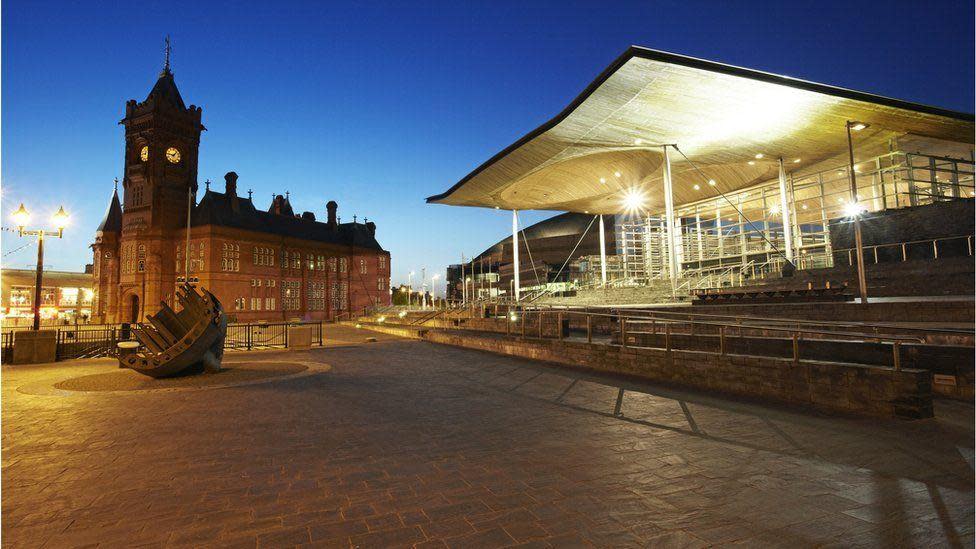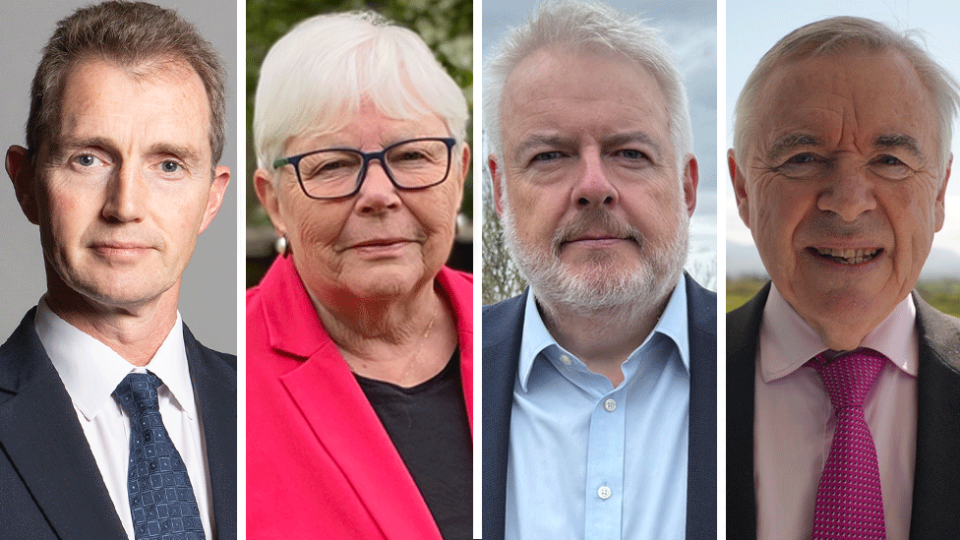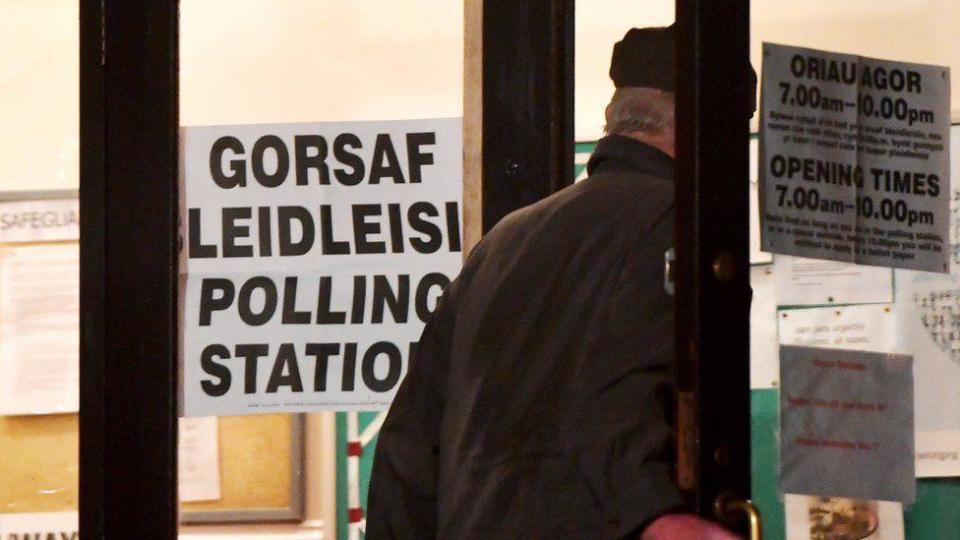Senedd voter turnout worries remain after 25 years

- Oops!Something went wrong.Please try again later.
- Oops!Something went wrong.Please try again later.
- Oops!Something went wrong.Please try again later.
- Oops!Something went wrong.Please try again later.
Voter turnout at Senedd elections is a big worry for senior Welsh politicians, as Wales marks 25 years of devolution.
Fewer than 50% of voters have cast their ballot in each of the Assembly or Senedd elections so far, with the next due in 2026.
Former first minister Carwyn Jones and current Welsh Secretary David TC Davies both said there was still confusion over what the Senedd is responsible for in Cardiff Bay.
It was granted full law-making powers over areas it controls, like the NHS, back in 2011, took on some income tax powers in 2019 and changed its name from Assembly to Senedd - or Welsh Parliament - the following year.
And a Bill is expected to pass this week which would increase the number of Senedd members from 60 to 96 for the 2026 election.
The 46% turnout in the first 1999 Assembly election was described at the time as a “huge deficit”. In 2021 the turnout was 47%.
Ieuan Wyan Jones, the former leader of Plaid Cymru and former deputy first minister, said that there was still a political and media deficit that needed to be addressed.
And former Lib Dem acting deputy first minister, Baroness Jenny Randerson, said that voters did not see a Senedd election as an obvious chance to make their voice heard because Labour had been perceived as a shoo-in having been in power from the start.

Who does what 'confusion'
Carwyn Jones, Labour FM between 2009 and 2018, said the low turnout was difficult to explain, but was possibly down to a lack of clarity and media coverage.
"I think there is still confusion about who does what in Wales, which government is responsible for what, and what local government is responsible for," he said.
"It is not a question that people do not agree with it [devolution].
"If you look at the polls there is a two to one majority in favour.
"But we do have a deficit in Wales when it comes to media coverage," he said.
"We do not have the strong indigenous press of Scotland.
"Most people in Wales read newspapers that are published in England, which don’t have Welsh editions... so people are not exposed to what the Senedd and the Welsh government does."
Senedd 'powerful' entity
David TC Davies, Conservative Secretary of State for Wales who was a politician in the Senedd between 1999 and 2007, said: "A lot of people in Wales are still not aware of how powerful the Senedd is and how much it runs.
"I've seen recent statistics suggesting that still 50% of the population are unaware of the fact that the NHS is run by the Senedd."
He said that all politicians needed to do more to "get out there".

'Legitimacy' and 'democracy'
Ieuan Wyn Jones, Plaid Cymru’s deputy FM between 2007 and 2011, would have been the first and so far only non-Labour FM had coalition talks between his party, the Conservatives and Lib Dems not broken down after the 2007 election.
He said turnout "does worry one because you need legitimacy and that is the key thing about democracy".
"There is a deficit there and it needs to be addressed but it is not just about the Senedd itself but how it is perceived in wider society through TV, through newspapers, through social media.
"I still think with the coverage there is a deficit politically but there is a media deficit as well," he said.
Baroness Jenny Randerson was part of those 2007 coalition talks.
The former Senedd politician had represented Cardiff Central and she took her seat in the House of Lords in 2011.
On turnout, she said: "Of course it worries me.
"I wish we had [reached 50%]. I really wish we had.
"We have probably lacked a realistic opportunity to change who is actually in power.
"The Labour party has been the obvious solution on each occasion.
"They have been the shoo-in as people would put it and I think that means that people do not see it as an obvious chance to make their voice count."
The 2007 coalition talks were, ultimately, rejected after a special conference vote by the Lib Dems.
"I greatly regret we didn't have the chance to show we could do things differently and that there was an alternative to the Labour party," she said.

Mr Wyn Jones insisted he had "no regrets", and that an eventual agreement with Labour led directly to the 2011 referendum on full law-making powers for the then assembly.
Mr Davies was the only one of the four politicians who did not want more powers, such as policing, justice and probation to be devolved to Wales.
He said the Welsh government should concentrate on improving what it already controlled.
His political opponents all made the case that a more powerful Senedd, as well as being closer to the people of Wales, would also encourage more people to come out and vote.
All four did agree that Wales had changed beyond political recognition over the past quarter of a century, not all that it had been for the better.
"Let’s start beating England in terms of service provision and then I wouldn't have a leg to stand on," said Mr Davies.
"I'd welcome it myself. I am not viscerally opposed to it but, at the moment, it is just not working."
'National pride'
Carwyn Jones said: "The most important thing is that we now have a profile that we never had before. People know Wales exists."
Baroness Randerson added: "There has been an amazing growth of awareness of national identity, a sense of national pride."
Mr Wyn Jones said: "It has been a big journey."
And he hinted at more to come in borrowing a phrase from one the architects of devolution, the former Welsh secretary Ron Davies.
"Never a truer word was spoken that devolution was a process rather than an event," he added.

